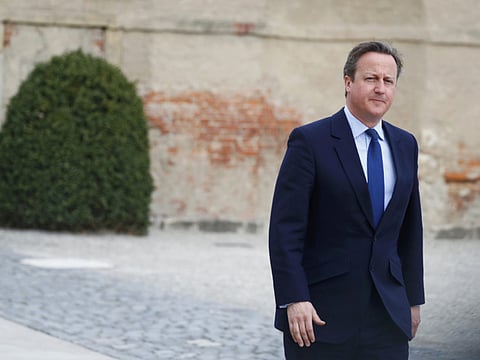British exit from European Union could be good for Europe
However the vote goes, it will likely affect Europe’s political and economic future too, again in unforeseeable ways

Britain is asking itself whether quitting the European Union would be good or bad — for Britain.
US President Barack Obama is advising Britain to stay — presumably because he thinks that would be good for the US. But what if Brexit would be good for Britain and the US mainly because it would be good for Europe?
I’m led to wonder by Mervyn King’s excellent new book, “The End of Alchemy,” which dwells on the importance of “radical uncertainty”. King, a former Governor of the Bank of England, says some of the worst policy mistakes arise from thinking that the future lends itself to analysis of probable outcomes, where you can attach numbers to the risks, and consider all eventualities covered.
Radical uncertainty forbids that approach — and you couldn’t ask for a better example than Brexit.
The British Treasury’s new paper on the long-term impact of EU membership weighs three main alternative outcomes after quitting, with the damage to Britain ranging from moderate in the best case to severe in the worst. The scenarios are based on different degrees of access to EU and non-EU markets. As I previously mentioned, these don’t exhaust the possibilities, even if you frame the issue solely in terms of trade policy. Negotiating an exit that left British access to the EU and other markets fully intact is unlikely, but possible. Terms even worse than those in the Treasury’s costliest scenario are possible too.
If that were all, you might say that three scenarios at least give a sense of the danger. The prospect has no economic upside: There’s no plausible scenario in which Britain quits and gets an economic benefit.
But market access is only one variable. The evolution of the British economy between now and 2030 (the end-point in the Treasury study) depends much more on the course of domestic policy and many other things, including whether Europe thrives or stagnates. Those other factors aren’t independent of the choice on Brexit. A vote to quit would have drastic political consequences in Britain, changing the trajectory of other policies, for good or ill. So would a vote to stay, if it irreparably split the Conservative Party. However the vote goes, it will likely affect Europe’s political and economic future too, again in unforeseeable ways.
This is the realm of radical uncertainty.
Within its ambit, here’s something to ponder. The euro zone is a monetary union without fiscal or political union — an arrangement that failed its first big test at enormous cost. Many of its members suffer chronically high unemployment, persistently slow growth, and continuing financial fragility. Without reforms to address the structural weaknesses of the euro system, Europe’s economic future isn’t bright.
Yet the EU finds methodical reform extremely difficult. Instead it proceeds from crisis to crisis, improvising as it goes. Since the crash, the union has been painfully slow to adapt, divided on the ends and means of European cooperation.
What difference, if any, might Brexit make? It’s impossible to know — but the event might prompt some bold thinking. Preventing further defections would be Europe’s first order of business. That could accelerate the reforms the continent needs. It might prompt greater fiscal support for the weakest members, addressing one of the euro zone’s biggest defects.
At the same time, with the EU having lost its most truculent member, the balance of opinion among its governments and voters would shift in favour of closer cooperation. Looking farther ahead, Brexit would make a United States of Europe more likely.
Perhaps this would be good for the EU. Perhaps, among other things, it would mean faster growth, lower unemployment and greater economic resilience. If so, the EU’s neighbours would benefit too. In or out of the EU, Britain will do better if Europe prospers. If Brexit helped the EU to mend itself and grow, the gains to Britain (to say nothing of the gains to Europe) might easily outweigh the costs.
Far-fetched speculation? No doubt, but what’s the alternative? Radical uncertainty means that exercises like the Treasury’s can’t be taken too seriously. Such studies are best used to deepen the discussion; they shouldn’t be used to feed false confidence by confining inquiry to a misleadingly narrow set of issues.
Regardless of radical uncertainty, Britain has to cast its vote. I’ve explained why mine would be to remain in the EU. Just don’t tell me the issue is open and shut.
— Bloomberg
Clive Crook is a former chief Washington commentator of the Financial Times. He previously worked at the Economist and as a senior editor at the Atlantic.


